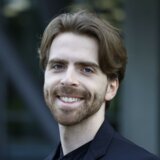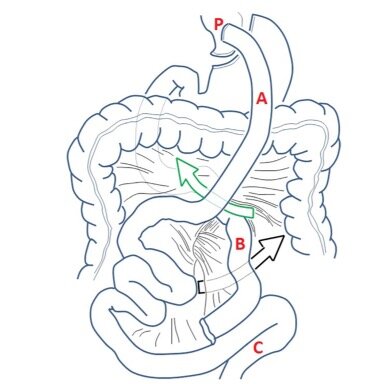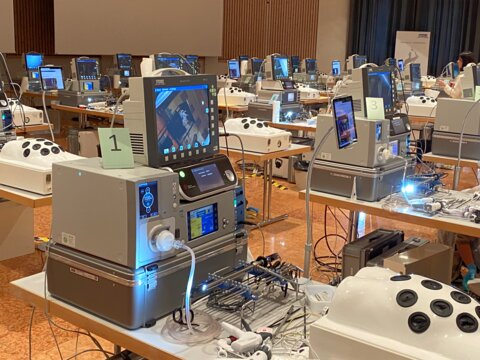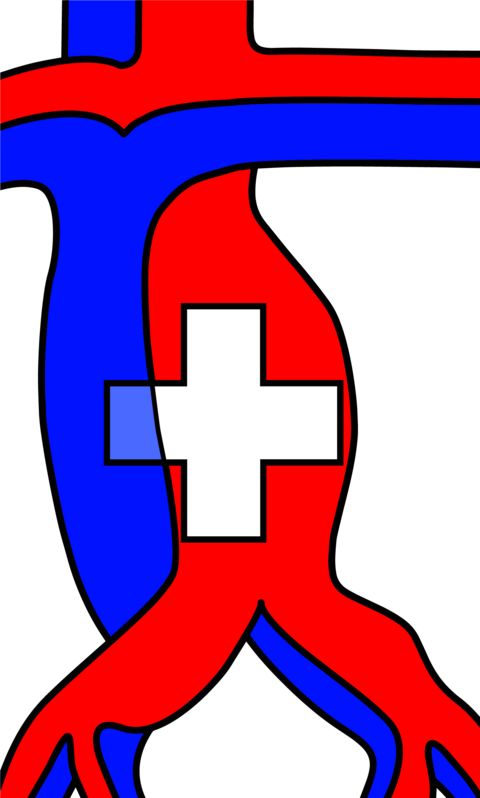SurgeAHEAD aims to equip students with foundational surgical skills, strengthen their confidence in their practical abilities, and introduce them to the wide range of surgical disciplines. This early exposure is crucial for students, enabling them to realistically assess their skills and make informed decisions regarding a career in surgery.
Structure and Content of the Course
The four-day course comprised daily eight-hour sessions, divided into two blocks organized by various medical institutions. This format offered students an in-depth exploration of diverse surgical fields, with at least 75% of the time dedicated to practical training. Participants utilized, among others: Surgical simulators, augmented reality, bone models, real surgical instruments, all embedded in a full-scale replica of an operating theater.
On the first day, students received an introduction to operating room fundamentals under the guidance of six surgical technology students from the Careum Bildungszentrum. This session covered surgical hand disinfection, basic instrument knowledge, pre-operative skin disinfection, and interprofessional collaboration — essential skills often expected from student during their clinical rotations but rarely taught in-depth in traditional medical education. Careum Bildungszentrum published a video about this first course block, which can be found at(1).
Later that day, participants practiced suturing techniques and arthroscopy, guided by three experienced Balgrist surgeons. In the following days, surgeons from the Children's Hospital Zurich led sessions on pediatric surgical cases, urological examination techniques, and burn necrotomy. Additionally, clinics from Zurich University Hospital and the municipal hospitals Triemli and Waid provided insights and trainings in suturing techniques, osteosynthesis of facial and long bones, emergency thoracic surgery procedures, as well as vascular access and occlusion techniques. A highlight was the demonstration of using augmented reality in the operating theater, immersing students in this cutting-edge technology. A complete overview of the program can be found in Table 1.
Results and Impact
The course left a lasting positive impression on both the twelve students and the tutors. The intensive format and close supervision were mentioned particularly positively, as they enabled the students to focus entirely on surgery for a week while receiving comprehensive feedback.
At the course's conclusion, participants completed a survey based on the Students' Evaluation of Educational Quality (SEEQ)(2), which covers nine constructs: "Learning," "Enthusiasm," "Organization," "Group Interaction," "Individual Rapport," "Breadth," "Examinations," "Workload/Difficulty," and "Assignments." SEEQ has been used for evaluation higher education quality in various contexts and countries(3,4). The course's structure required omitting some questions and the "Assignments" construct, resulting in a shorter 25-question survey. However, shortened versions of the SEEQ with as few as 15 questions have been used before and proven just as reliable as the full version(5), aligning with the general principle that Likert scales effectively capture well-defined constructs(6). All twelve participating students completed the survey, with results shown in Figure 1.
The students were given the option to provide a freeform comment at the end of the survey. Out of the twelve students, three provided constructive feedback on individual course blocks concerning schedule optimization. Important takeaways from these, as well as from informal feedback during the course, were:
A stronger focus on practical exercises, incorporating models and simulators, helps to keep students engaged.
A clearer definition of the theme, topic and goal of each course block helps students to focus on what is most important. This means allocating time for theoretical introductions to the topic is valuable and should not be skipped in favor of doing only practical exercises.
Planning of fixed breaks, at least once per block, is important for focus in such an intense course format.
Future Prospects
Given the positive feedback from both quantitative and qualitative evaluations, a continuation of the course is planned for 2025. The number of participants will be increased from twelve to 24 to provide more students with this valuable learning experience. In the long term, we aim to run the course annually, possibly even biannually, to extend this opportunity to an even broader cohort.
Conclusion
Training initiatives like SurgeAHEAD can significantly ease the transition from academic training to patient care. They make a critical contribution to enhancing the quality of surgical training and care in Switzerland. While the intensive course format requires considerable resources, we are confident that selecting the most motivated students will yield returns that justify the investment. We are confident that SurgeAHEAD will inspire greater engagement with early surgical training in the Zurich area, serving as a model for other universities.
Acknowledgments
A heartfelt thanks goes to the more than 30 tutors – surgeons, surgical technicians, and cardiac technicians – who contributed their time and expertise to the SurgeAHEAD 2024 course. We are equally thankful to the institutions that generously allowed these professionals to dedicate their working hours to teaching. These include Careum; the departments of cardiac surgery; cranio-maxillo-facial and oral surgery; thoracic surgery; and visceral and transplant surgery at the University Hospital Zurich; the University Hospital Balgrist; the University Children’s Hospital Zurich; as well as the departments of orthopedic and trauma; and cardiac surgery from Zurich’s municipal hospitals Triemli and Waid; and the Cantonal Hospital Winterthur. Lastly, special thanks goes to the OR-X team for their comprehensive support in ensuring the smooth running of the course in every aspect.
Perspective of a Co-founder
The concept for this innovative course stemmed from my experiences as a surgical assistant and trainee across various clinics. I observed that while medical students – myself included – at institutions that value training are often given opportunities to actively participate in surgeries beyond just holding retractors, they often lack sufficient dry-lab experience. This means they may lack the context and understanding that would maximize their learning experience, as well as the confidence to make the most out of such opportunities. Conversations with senior students confirmed this impression for later years of study as well, motivating me to offer my peers an opportunity to begin their elective year well-prepared.
What positively surprised me the most was the motivation and willingness to help and participate, from almost everyone I asked. I expected to spend a lot more time persuading the busy surgeons, surgical technicians, professors and OR-X-team. Instead, they all immediately supported the initiative with enthusiasm.
- Bildungszentrum Careum. Interprofessionelle Zusammenarbeit im OR-X | Careum Bildungszentrum [Internet]. Youtube; 2024. Available from: https://www.youtube.com/watch?v=FVcRSmv6240
- Marsh HW. SEEQ: A reliable, valid, and useful instrument for collecting students’ evaluations of university teaching. Br J Educ Psychol. 1982;52(1):77–95. Available from: https://doi.org/10.1111/j.2044-8279.1982.tb02505.x
- Coffey M, Gibbs G. The Evaluation of the Student Evaluation of Educational Quality Questionnaire (SEEQ) in UK Higher Education. Assess Eval High Educ. 2001;26(1):89–93. Available from: https://doi.org/10.1080/02602930020022318
- Grammatikopoulos V, Linardakis M, Gregoriadis A, Oikonomidis V. Assessing the Students’ Evaluations of Educational Quality (SEEQ) questionnaire in Greek higher education. High Educ. 2014;70(3):395–408. Available from: https://doi.org/10.1007/s10734-014-9837-7
- Corbalán M, Plaza I, Hervas E, Aldabas-Jordi Zaragoza E, Arcega F. Reduction of the Students' Evaluation of Education Quality questionnaire. 2013 Federated Conference on Computer Science and Information Systems. 2013. p. 695–701.
- Jebb AT, Ng V, Tay L. A Review of Key Likert Scale Development Advances: 1995–2019. Front Psychol. 2021;12. Available from: https://doi.org/10.3389/fpsyg.2021.637547













